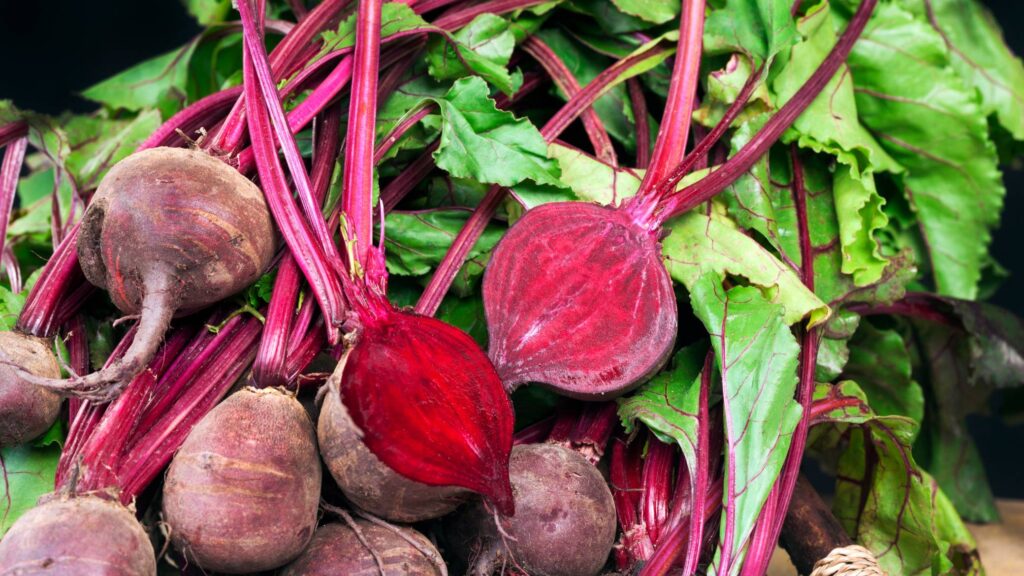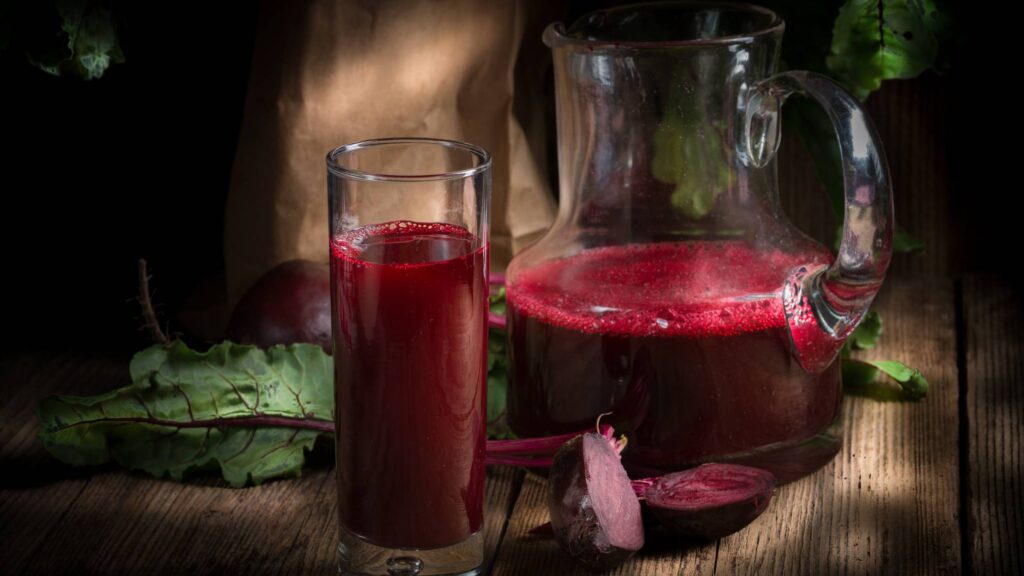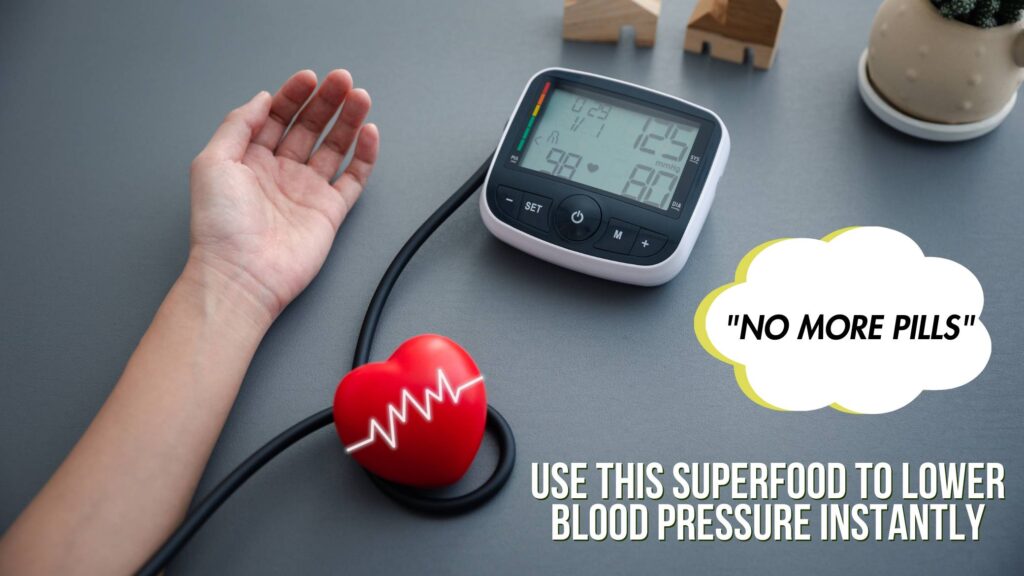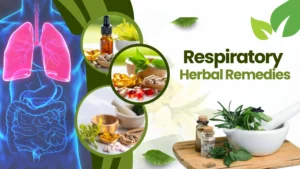Imagine sitting in a doctor’s office, heart racing as you hear the words: “Your blood pressure is dangerously high.” High blood pressure or hypertension, affects nearly half of all adults worldwide, silently increasing the risk of heart attacks, strokes, and other life-threatening conditions. For many, the only solution seems to be a lifelong dependency on medication. But what if there were a natural, pill-free remedy that could help?
Enter the superfood that’s taking the health world by storm—a natural, accessible ingredient proven to lower blood pressure almost instantly. We’ll reveal this superfood, how it works, and share practical ways to incorporate it into your daily life. Get ready to transform your health with a simple, natural solution.
Understanding Blood Pressure and Its Risks
What Is Blood Pressure and How Does It Affect the Body?
Blood pressure is the force of circulating blood exerted against the walls of the arteries. It’s a critical physiological process, ensuring oxygen and nutrients reach all parts of the body while removing carbon dioxide and waste products. Blood pressure is measured in millimeters of mercury (mmHg) and is recorded as two numbers:
- Systolic pressure: The higher number represents the pressure in your arteries when the heart beats and pumps blood.
- Diastolic pressure: The lower number indicates the pressure in your arteries when the heart is at rest between beats.
For example, a reading of 120/80 mmHg means 120 systolic and 80 diastolic pressure. Blood pressure is considered normal at this level. If it rises to or exceeds 140/90 mmHg consistently, it is classified as hypertension.
Hypertension develops when arteries lose flexibility or narrow, causing the heart to work harder to circulate blood. Over time, this extra strain can damage arteries and organs like the heart, brain, and kidneys, leading to serious health issues.
Dangers of Unmanaged Hypertension
Hypertension is a silent yet dangerous condition. Its subtle nature often means people are unaware they have high blood pressure until it has caused significant damage. If left untreated, hypertension can lead to life-threatening complications, such as:
- Stroke: High blood pressure can cause arteries in the brain to weaken or rupture, leading to a stroke. It can also lead to the formation of blood clots, which block blood flow to the brain. Strokes are one of the leading causes of death and disability worldwide, often linked to prolonged hypertension.
- Heart Disease: Overworking the heart causes the heart muscle to thicken or weaken, increasing the risk of heart attacks, heart failure, and other cardiac conditions. Hypertension is a primary risk factor for coronary artery disease.
- Kidney Damage: Kidneys depend on healthy blood flow to filter waste from the body. Hypertension can damage blood vessels in the kidneys, reducing their function and leading to kidney disease or failure.
- Vision Loss: Hypertension can damage the small blood vessels in the eyes, leading to hypertensive retinopathy. This condition can cause vision problems, and in severe cases, blindness.
- Aneurysm: Prolonged high blood pressure can weaken artery walls, causing bulges or aneurysms. These can rupture and result in life-threatening internal bleeding.
The consequences of hypertension extend beyond these conditions, often reducing quality of life and increasing healthcare costs.
Why Are Natural Remedies Gaining Traction Over Medication?
Although medications are commonly prescribed to control hypertension, they come with potential side effects such as fatigue, dizziness, headaches, and in some cases, long-term risks to organs like the liver and kidneys. These drawbacks have led to a growing interest in natural remedies as an alternative or complementary approach to managing high blood pressure.
Addressing the Root Cause: Natural remedies, such as dietary changes and lifestyle modifications, focus on tackling the underlying causes of hypertension rather than merely treating symptoms.
Minimal Side Effects: Unlike medications, natural methods like superfoods, exercise, and mindfulness practices generally carry fewer risks and side effects.
Cost-Effective: Natural remedies often involve affordable, everyday foods and habits, making them accessible to a broader population.
Holistic Health Benefits: Beyond managing blood pressure, natural remedies contribute to overall health, including improved metabolism, weight control, and reduced stress levels.
Superfoods like garlic, beetroot, and flaxseeds have gained attention for their potent ability to support cardiovascular health. These foods are rich in nutrients such as nitrates, potassium, and antioxidants, which are known to relax blood vessels, improve circulation, and lower blood pressure.
Incorporating natural remedies into one’s lifestyle empowers individuals to take control of their health while reducing dependence on medications. This shift not only alleviates hypertension but also fosters long-term wellness, making natural approaches a preferred choice for many.
Beetroot: Superfood That Works Wonders for Blood Pressure
Beetroot is more than just a nutrient-packed root vegetable. It contains dietary nitrates, compounds that have been proven to lower blood pressure naturally and quickly. Once ingested, these nitrates are converted into nitric oxide in the body, which helps to relax and dilate blood vessels. This process improves blood flow and, as a result, helps to lower blood pressure.

The Science Behind Beetroot’s Blood Pressure Benefits
Several clinical studies have shown that beetroot juice and beetroot consumption can significantly reduce both systolic and diastolic blood pressure. Here’s how it works:
- Nitric Oxide Production: Nitrates found in beetroot are converted into nitric oxide, which helps relax the blood vessels. This relaxation reduces the resistance in the arteries, allowing blood to flow more easily, which lowers blood pressure.
- Rapid Effects: Studies indicate that consuming beetroot juice can lower systolic blood pressure by up to 10 mmHg within just 2 to 6 hours of consumption. This makes beetroot a quick and effective option for those looking to lower blood pressure in a short amount of time.
- Long-Term Health Benefits: Regular consumption of beetroot can have lasting effects on cardiovascular health. Research has shown that beetroot juice may reduce arterial stiffness, improve overall heart function, and reduce the risk of heart-related diseases.
Other Health Benefits of Beetroot
In addition to lowering blood pressure, beetroot is packed with other essential nutrients and antioxidants, which provide various health benefits:
- Rich in Nutrients: Beetroot is an excellent source of vitamins (like B6 and C), folate, iron, and potassium. These nutrients support overall health, including energy production and immune system function.
- Anti-Inflammatory: Beetroot is rich in betalains, antioxidants that help reduce inflammation in the body. Chronic inflammation is linked to heart disease, so reducing it is beneficial for heart health.
- Detoxifying Properties: Beetroot helps the liver detoxify and remove waste products from the body, promoting healthy digestion and metabolism.
- Boosts Exercise Performance: The nitric oxide produced from beetroot can improve blood circulation and oxygen delivery to muscles, enhancing endurance and exercise performance.
How to Incorporate Beetroot into Your Diet
Beetroot is incredibly versatile and can be easily added to your daily meals. Here are some popular ways to enjoy its blood pressure-lowering benefits:
- Beetroot Juice: Drinking fresh beetroot juice is one of the most effective ways to reap its blood pressure-lowering benefits. You can blend fresh beets with water, lemon, and a little ginger for added flavor.

- Raw Beetroot in Salads: Grate raw beetroot and add it to your salads for a crunchy, colorful boost of nutrients. You can combine it with leafy greens, nuts, and a tangy vinaigrette for a delicious dish.
- Roasted Beets: Roasting beets brings out their natural sweetness. Simply peel and chop the beets, then roast them with olive oil, salt, and pepper until tender. Serve them as a side dish or add them to bowls and salads.
- Beetroot Smoothies: Add beets to your morning smoothie for an extra dose of nutrition. Combine beets with fruits like berries, apples, or bananas, and add some yogurt or almond milk for a creamy texture.
- Beetroot Powder: For a convenient option, beetroot powder is available in many health food stores. You can easily add a spoonful to smoothies, soups, or even baked goods.
Hypertension-Friendly Foods: Best Choices for Lowering Blood Pressure
Leafy Greens: Spinach, kale, and other greens are rich in potassium, which helps balance sodium levels in the body, reducing hypertension.
Berries: Blueberries, raspberries, and strawberries are packed with antioxidants, which help protect blood vessels and support heart health.
Oats: Whole grain oats can help reduce blood pressure by providing soluble fiber, which lowers cholesterol and improves blood vessel function.
Fatty Fish: Salmon, mackerel, and other fatty fish are rich in omega-3 fatty acids, which have been shown to reduce hypertension and inflammation.
Precautions and Considerations
Although beetroot and other blood pressure reducing foods are generally safe, it’s important to consume them in moderation, especially for individuals with specific health conditions. Here are a few things to keep in mind:
- Beeturia: Beets can cause your urine or stool to turn pink or red, a harmless condition called beeturia. While this can be alarming, it’s completely normal and temporary.
- Kidney Stones: Beets contain oxalates, which can contribute to kidney stones in susceptible individuals. If you have a history of kidney stones, it’s best to consult with a healthcare professional before consuming large amounts of beetroot.
- Blood Pressure Drops: If you’re already on blood pressure medication, consuming large amounts of beetroot could cause your blood pressure to drop too much. Be sure to monitor your blood pressure closely and talk to your doctor about making any significant dietary changes.
Beetroot is a powerhouse superfood that can help you lower your blood pressure naturally and instantly, without the need for pills. Packed with nitrates that boost nitric oxide production, beetroot relaxes blood vessels and improves circulation, leading to reduced blood pressure.
By incorporating beetroot and other heart-healthy foods into your daily diet, you can take control of your hypertension and promote long-term heart health. Pair these changes with a healthy lifestyle, and you’ll be on the path to a healthier, happier heart—naturally.






